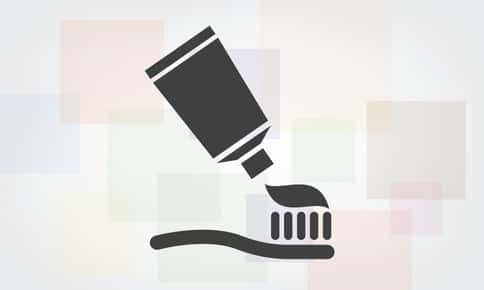
Charcoal, a common ingredient in 19th century healthcare products, has recently experienced a resurgence in popularity. Visit any drugstore and you'll see charcoal facial masks, deodorants, soaps and even toothpastes on the shelves. In fact, proponents of charcoal toothpastes and tooth powders claim that the ingredient will whiten teeth naturally and inexpensively. Have you been thinking about adding charcoal toothpaste to your oral care routine? Before you do, take a look at a few facts we've uncovered about the products.
Activated Charcoal Isn't the Same Type of Charcoal Used for Grilling
Crumbling a few charcoal briquettes and applying them to your teeth won't have the same effect as using products designed specifically for teeth. Oral care products use activated charcoal, or activated carbon, as it's formally known. Activated carbon is created by burning wood or coal at high temperatures. When oxygen is added, small pores form in the charcoal, allowing it to trap toxins and tiny particles. Hospitals use activated charcoal to treat accidental poison ingestion, as the substance stops some types of poisons from being absorbed by the stomach.
Manufacturers Say Activated Charcoal Can Remove Stubborn Surface Stains on Teeth
A duller smile is an unfortunate consequence of your daily coffee or cola habit. Teeth become dull when the dark pigments that give the beverages their color become trapped in small pores in your tooth enamel. Any brightly colored food or drink, such as wine, tea, blueberries or soy sauce, can cause stains. According to the manufacturers of activated charcoal toothpastes, the dark pigments attach themselves to the pores in the charcoal, removing the stains from your teeth. Toothpaste producers also claim that their products can reduce cavity-causing bacteria on your teeth and keep your breath fresher.
More Research Needs to Be Conducted
Dentists recommend caution when using activated charcoal pastes and powders because the products' safety and effectiveness haven't been established. Recent literature published in the September 2017 edition of the Journal of the American Dental Association concluded that there is "insufficient clinical and laboratory data to substantiate the safety and efficacy claims of charcoal and charcoal-based dentrifices."
Dentists are worried that the abrasive nature of charcoal may actually make your teeth look duller. If you use the products regularly, they may wear away your enamel, exposing the yellower dentin layer underneath. Unfortunately, enamel can't be restored once it disappears.
Use of activated charcoal products may also irritate your gums, particularly if you already have receding gums or gum disease. Do you have crowns, bridges, tooth-colored fillings or veneers? There is some concern that using activated charcoal pastes or powders may darken these restorations or leave an unsightly line at the point where the edge of the restoration meets your gum.
Caution is Important When Using Activated Charcoal Products
If you do decide to try an activated charcoal product, it's important to keep these guidelines in mind:
- Limit Use. Because the product is abrasive, you probably won't want to use it more than once a week.
- Keep Using Fluoridated Toothpaste. Make sure that the toothpaste you use the other six days of the week contains fluoride. The mineral rebuilds weak areas of enamel, which can help you avoid cavities.
- Be Gentle. Use gentle pressure when brushing your teeth. Vigorously scrubbing activated charcoal paste or powder on to your teeth may increase the risk of enamel erosion.
- Examine Your Teeth and Gums Regularly. If your gums hurt, bleed or look red and swollen after brushing with activated charcoal, stop using the product and call the dentist. The same advice applies if you experience sensitivity or pain in your teeth after using a paste or powder.
Sources:
Delta Dental: Is Activated Charcoal Safe for Your Smile?, 5/6/17
http://deltadentalwiblog.com/activated-charcoal-safe-smile/
American Dental Association: Natural Teeth Whitening: Fact vs. Fiction
http://www.mouthhealthy.org/en/az-topics/w/natural-teeth-whitening
The Journal of the American Dental Association: Charcoal and Charcoal-Based Dentifrices, 9/17
http://jada.ada.org/article/S0002-8177(17)30412-9/fulltext
Harper’s Bazaar: Is Charcoal Toothpaste Safe to Use?, 8/9/17
http://www.harpersbazaar.com/beauty/health/advice/a3764/charcoal-toothpaste-pros-cons/
